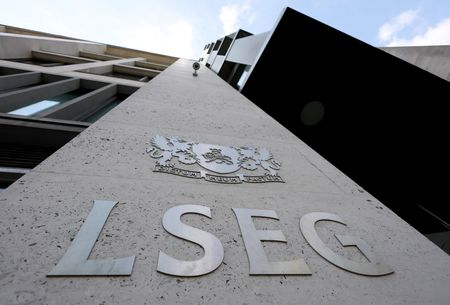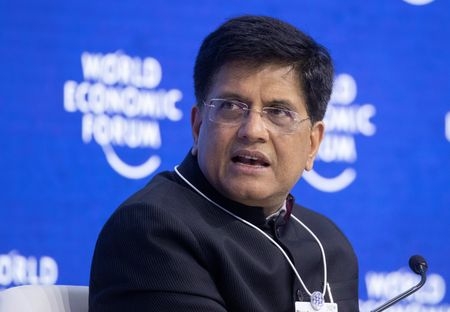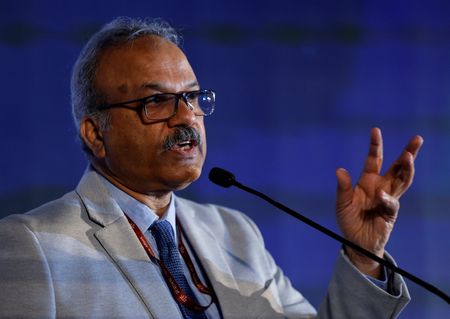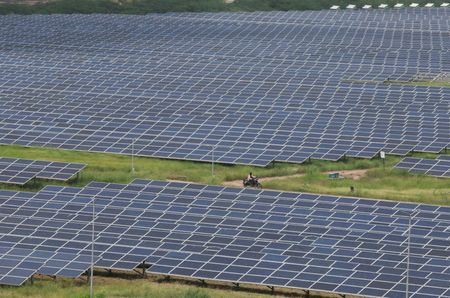By Sudarshan Varadhan and Sethuraman N R
SINGAPORE/NEW DELHI (Reuters) -Coal prices in India will fall after revisions to taxes on the fuel that generates nearly 75% of the country’s electricity, industry officials and analysts said, as a higher consumption tax is offset by the removal of a carbon levy.
That could push up domestic consumption at the expense of imports, they said, putting further pressure on already plunging global coal prices.
India’s finance minister hiked consumption levies on coal to 18% from 5% on Wednesday. However, buyers no longer have to pay a flat carbon tax of 400 Indian rupees ($4.57) a metric ton, known as a cess.
“We anticipate an increase in demand for locally mined coal as the elimination of the cess makes it cheaper despite the higher consumption tax,” said Ashis Kumar Pradhan, senior analyst at consultancy Wood Mackenzie.
Prices of power plant-grade fuel sold by Coal India, which produces three-quarters of Indian output, will now be 8.1%-19.8% cheaper for utilities and 5.6%-16.7% cheaper for other users such as smelters, according to Reuters calculations based on Coal India and Wood Mackenzie data.
The calculations tallied with estimates provided by the Coal Consumers Association of India to Reuters.
India is the world’s second largest coal importer behind China, but imports are expected to fall as the price of grades typically shipped in from top supplier Indonesia will be 3.5% higher after the tax change, Pradhan said.
The lower effective taxes on coal are expected to help generators burning the fossil fuel to cut costs by 0.12 rupees per kilowatt hour, said Vikram V, analyst at Moody’s ICRA unit.
That compares with ICRA’s estimates of a 0.10 rupee per kWh decline in generation costs for solar power developers following a cut in tax rates on panels to 5% from 12%.
Coal India and the federal ministries for finance, power and coal did not respond to requests for comment.
The move will also benefit power producers and help revive plunging sales by state-run Coal India, which has grappled with tepid power demand and a rise in renewable power generation.
Ashok Khurana, vice chairman at India’s Association of Power Producers, said the decision would help reduce generating costs.
“However its impact on consumer tariffs would depend on distribution companies,” he added.
The move could result in lower tariffs if distribution companies pass on reduced procurement costs to consumers.
If the costs are not passed on, it could help improve the finances of debt-laden, state government-owned distribution companies, Khurana said.
($1 = 87.5060 Indian rupees)
(Additional reporting by Nikunj Ohri in New Delhi; Editing by Jan Harvey)











